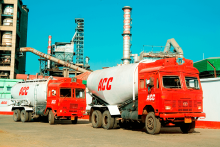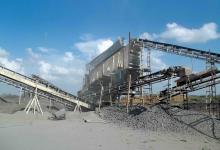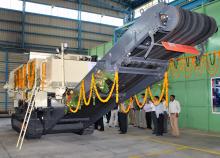The Chenani-Nashri tunnel has been inaugurated by Indian Prime Minister Narendra Modi, and it cuts travel time between the two cities of Jammu and Srinagar by two hours while eliminating safety hazards on the existing mountainous route.
The new 9km single tube bi-directional Chenani-Nashri tunnel with a parallel intermediate lane escape tunnel of 29 cross passages, is considered one of the most challenging infrastructure projects in India in recent years.
It will make road travel safer and reduce traffic disturbances caused by unpredictable landslides, sharp bends, vehicle breakdowns and accidents on the existing mountainous route.
LafargeHolcim’s Indian company Ambuja Cement developed tailor-made logistics to ensure regular delivery of more than 300,000tonnes of high-quality cement to the remote mountain area.
Ambuja Cement’s technical services teams provided complete technical support for this venture. The teams conducted cement mix design trials to achieve optimised mix proportion.
Following the mix design trials, it was observed that Ambuja Cement retained its strength, despite the low temperatures in the region.
The company held self-compacting concrete workshops for engineers to upgrade their knowledge and skills and also provided continuous support at the construction site to identify, diagnose and quickly resolve problems.
The group started providing materials to the project in 2010.
LafargeHolcim has been involved in a range of other major infrastructure projects in India including major highway and railroad projects and the Z-Morh and Qazigund-Banihal tunnels that are also located in the state of Jammu and Kashmir. Other projects include metro rails in Bangalore, Chennai, Delhi, and Hyderabad and several hydro-electric power plants.







